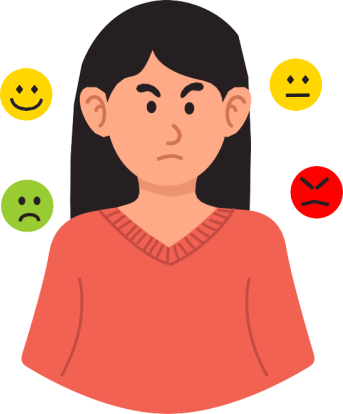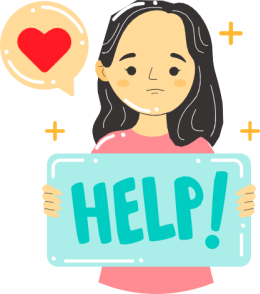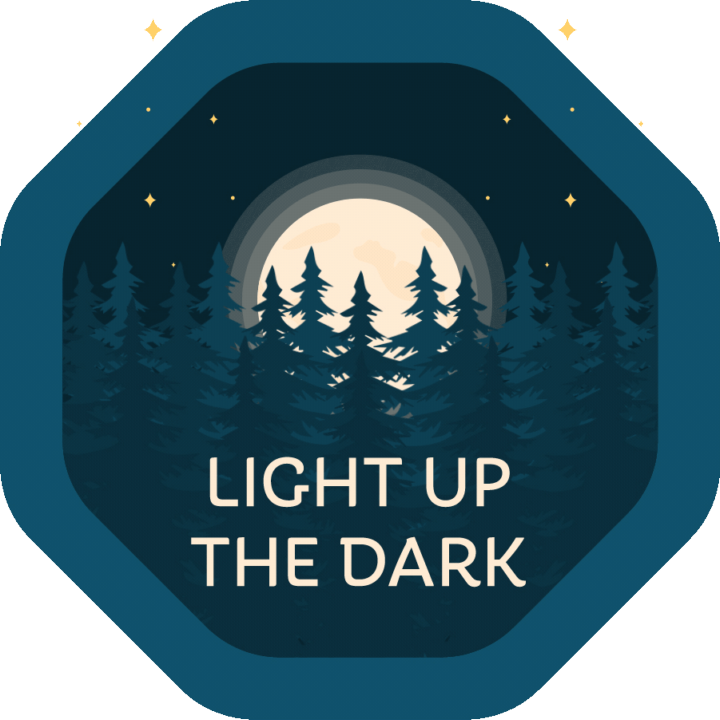- Home
- Sleep Clinic
Sleep Clinic
Psynchronize Minds’ Sleep Clinic under the Guidance of Dr. Nirzaree Parikh
Understanding Nonorganic Sleep Disorders
Nonorganic sleep disorders are sleep disturbances not caused by a physical condition, substance use, or another medical condition. These disorders significantly impact the quality of life, affecting both mental and physical health.

What is Attention Deflcit Hyperactivity Disorder (ADHD)?
- ADHD is a neurodevelopmental disorder characterized by a pattern of inattention, hyperactivity, and impulsivity that interferes with functioning or development.
- It affects children, adolescents, and adults, impacting their schooling, work, relationships, and daily activities.
Types of Nonorganic Sleep Disorders (ICD-10)
-
Insomnia (F51.0):
Dimculty initiating or maintaining sleep.
-
Sleepwalking (Somnambulism) (F51.3):
Walking or performing other complex behaviors while asleep.
-
Nonorganic Hypersomnia (F51.1):
Excessive sleepiness not due to a physical cause.
-
Night Terrors (F51.4):
Episodes of intense terror and partial awakening during sleep.
-
Nonorganic Disorder of Sleep-Wake Schedule (F51.2):
Irregular sleep-wake rhythm affecting daily functioning.
-
Nightmares (F51.5):
Repeated occurrences of extended, extremely dysphoric, and well-remembered dreams

Symptoms and Characteristics
Insomnia: Dimculty falling asleep, waking up often during the night, waking up too early.
Hypersomnia: Prolonged nighttime sleep, dimculty waking up, daytime naps that do not relieve drowsiness.
Disorder of Sleep-Wake Schedule: Inability to fall asleep or wake up at socially acceptable times.
Sleepwalking: Walking or performing complex tasks while not fully awake, often with no memory of the event.
Night Terrors: Sudden awakening from sleep with a loud scream or cry, intense fear, and no recall of the event.
Nightmares: Recurrent, detailed dreams that cause distress or anxiety, often remembered upon waking.
Psychometric Assessments
Several assessments are available for diagnosing and understanding the depth of sleep disorders, including polysomnography, actigraphy, and various sleep diaries and questionnaires tailored to the specific disorder.

Challenges and Real-Life Impacts
Individuals with sleep disorders may face various challenges, such as decreased productivity, mood swings, and increased risk of accidents. For example, a person with severe insomnia might struggle with concentration at work, leading to mistakes or missed deadlines.
Managing Sleep Disorders at Home
Sleep hygiene refers to the practices and habits that are conducive to sleeping well on a regular basis. Improving sleep hygiene can lead to better sleep quality and duration. Here are the key steps in detail:
Regular Sleep Schedule: Aim to go to bed and wake up at the same time every day, even on weekends. This helps regulate your body’s internal clock, making it easier to fall asleep and wake up naturally.
Create a Bedtime Ritual: Establish a relaxing pre-sleep routine to signal your body it’s time to wind down. This can include activities like reading, taking a warm bath, or practicing meditation.
Optimize Your Sleep Environment: Make your bedroom conducive to sleep by keeping it cool, dark, and quiet. Consider using blackout curtains, earplugs, or white noise machines if necessary. Ensure your mattress and pillows are comfortable and supportive.
Limit Exposure to Screens: Reduce exposure to blue light from phones, tablets, and computers at least an hour before bedtime. Blue light can interfere with your body’s ability to prepare for sleep by disrupting the production of melatonin, a hormone that regulates sleep-wake cycles.
Watch Your Diet: Avoid large meals, caffeine, and alcohol close to bedtime.These can disrupt sleep by causing discomfort, increasing heart rate, or stimulating the brain.
Exercise Regularly: Regular physical activity can help you fall asleep faster and enjoy deeper sleep. However, avoid vigorous exercise close to bedtime as it can energize you and make it harder to fall asleep.
Manage Stress: Stress and worry can make it dimcult to fall asleep.
Techniques such as deep breathing, yoga, and journaling can help manage stress levels and promote relaxation at bedtime.
Limit Naps: If you must nap, try to keep it short (about 20-30 minutes) and avoid napping late in the day, as it can interfere with nighttime sleep.
Seek Natural Light: Exposure to natural sunlight during the day can help regulate sleep patterns. Try to get outside or sit by a window during daylight hours.
Know When to Seek Help: If you’ve tried improving your sleep hygiene but still struggle with sleep, it may be time to consult a healthcare provider.
Persistent sleep dimculties could be a sign of a sleep disorder or other health condition.

When to Seek Help
It’s essential to seek professional help when sleep disorders persist despite home management, affect daily functioning, or lead to significant distress.
Our Services
At Psynchronize Minds’ Sleep Clinic, we offer a comprehensive range of services, including medical treatment options like medication and CPAP for sleep apnea, and psychological services such as cognitive-behavioral therapy for insomnia (CBT-I).

Why Choose Dr. Nirzaree Parikh
Dr. Parikh brings a wealth of expertise and compassionate care to the treatment of sleep disorders. Her holistic approach, combining medical and psychological therapies, ensures tailored treatment plans that address the unique needs of each patient.
Choosing Dr. Nirzaree Parikh and Psynchronize Minds’ Sleep Clinic means entrusting your sleep health to a dedicated professional committed to restoring your night’s rest and improving your overall well-being.
